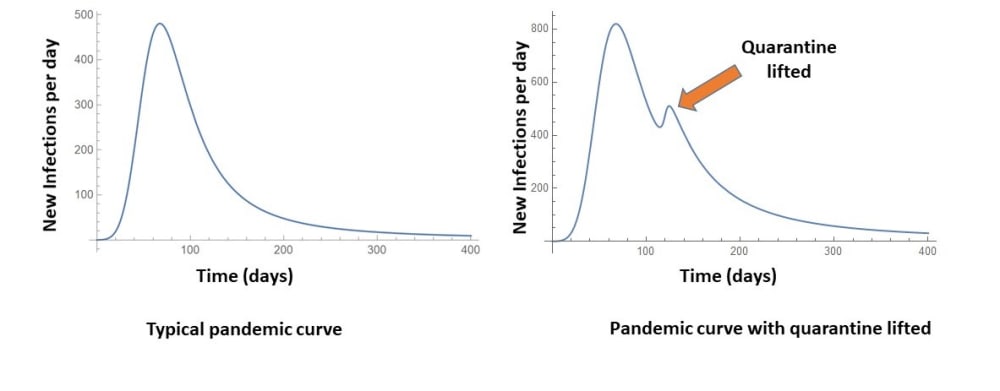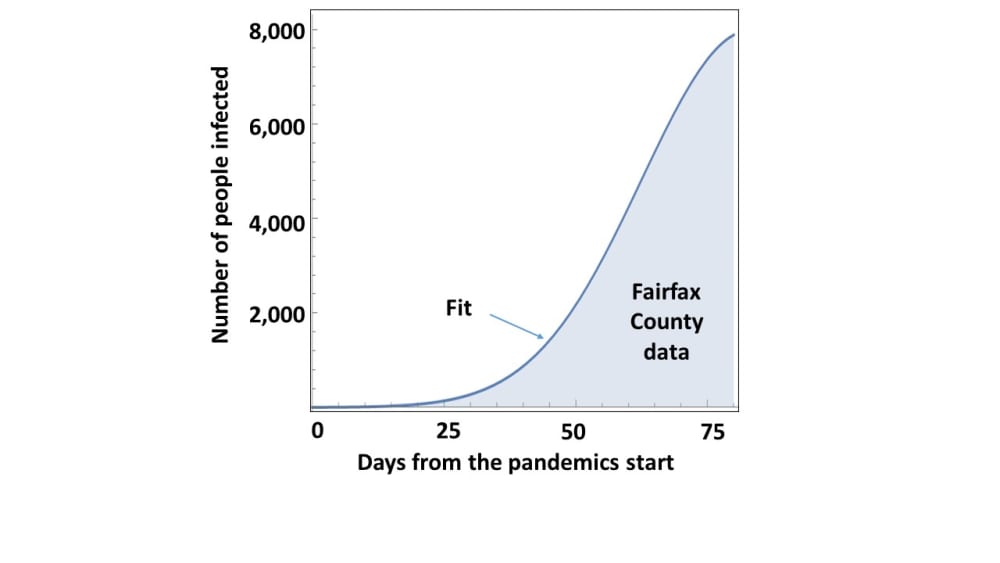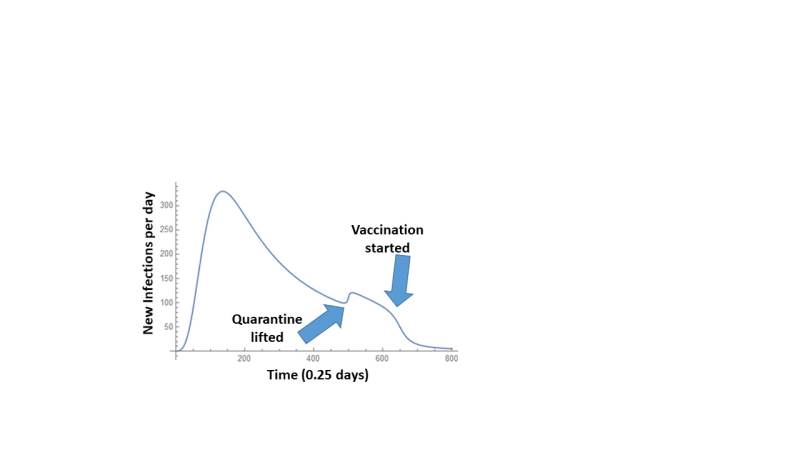The management of the COVID19 pandemics requires a difficult trade-off between limiting the spread of the disease and trying to control and limit the horrendous damage to the economy. Opening the United States could relieve economic and psychological pressures but could also lead to a spike in the COVID19 infections. To address this problem, many states have chosen a partial opening. For example, most of the state of Virginia was open on May 14, 2020. However, Northern Virginia, Richmond and Accomack County were all granted two-week delays.
We proposed and demonstrated the application of the pandemic evolution model based on the new Pandemic Equation. The Pandemic Equation is the modified rate equation with slowly varying parameters. This approach is similar to the adiabatic approximation in quantum theory of solids. The unique features of our approach is having a limited number of the pandemic curve evolution parameters with an easily understood meaning and straight forward parameter extraction. These parameters are directly linked to the mitigation measures, to the introduction or removal of the quarantine, and to the effect of vaccination when and if introduced. The mitigation measures affect the growth time constant in the mitigation equation and result in an asymmetric pandemic curve with a steeper rise than a decrease. The quarantine removal and business opening lead to a spike in the pandemic curve predicted by Pandemic equation. The effective vaccination reduces the new daily infections described by the Pandemic equation to nearly zero. The pandemic curves in many localities have similar time dependencies but shifted in time. The Pandemic Equation parameters extracted from the well advanced pandemic curves can be used for predicting the pandemic evolution in the localities, where the pandemics is still in the initial stages. Using the multiple pandemic locations for the parameter extraction allows for the uncertainty quantification in predicting the pandemic evolution. Future work will use Artificial Intelligence to train the Pandemic Equation model for the parameter optimization based on the history of multiple pandemic locations. The Pandemic Equation parameters are extracted from a number of well-developed pandemic curves for the localities such as New York City, Italy, Spain, or Belgium. The extracted parameters are then used to generate the range of the pandemic curves for the locations, where the infection cases are still growing and/or for smaller communities. This approach allows for the uncertainty quantification in predicting the pandemic evolution in the localities with the pandemic on the rise. The Pandemic Equation parameters are directly related to the infection pool and to the mitigation measures.
The model allows for an easy parameter extraction, and a large community of users could plot and manipulate the pandemic curves on any laptop, tablet, or a smart phone. This new tool could be also used for different evolution curves related to the pandemics, such as the expected numbers of needed ICUs or COVID19 medical personnel. The model allows a large community of potential users plot and manipulate the pandemic curves on on any laptop or a smart phone.
Like this entry?
-
About the Entrant
- Name:Michael Shur
- Type of entry:individual
- Software used for this entry:Mathematica(tm)
- Patent status:none








